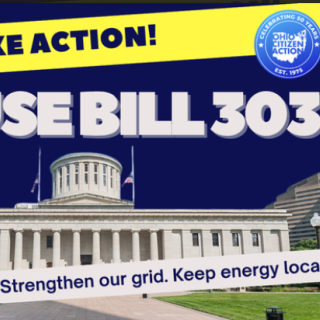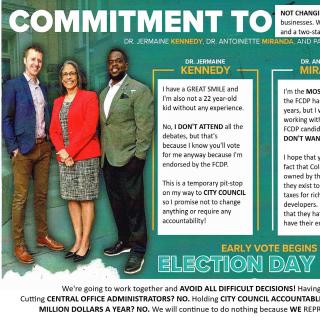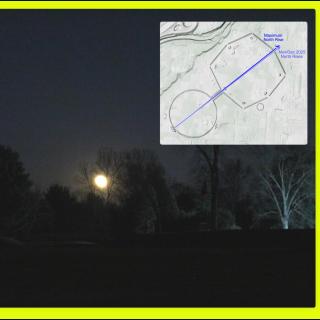Reverend Doctor T. Anthony Spearman found himself in an unusual dilemma. He was greatly worried about private, for-profit commercial entities secretly coding voting machines. His concern was expected since he is a member of the Guilford County Board of Elections in North Carolina, representing the most populous area of the state, including the city of Greensboro.
On behalf of the North Carolina State Conference of the National Association for the Advancement of Colored People (NAACP) Spearman made a public request for information to all 100 counties in the state asking 31 questions centering around who was programming the voting machines in each county.
His August 24, 2020 letter states: “We are determined to protect the polls during the upcoming election. We are in unchartered times and we look forward to working with our County Boards of Elections, the state agency charged with overall responsibility for the administration of the elections to assure this election cycle is executed with integrity and everyone’s vote is counted and protected.”
Spearman was shocked by a response he dated September 4 from Katelyn Love, General Counsel to the North Carolina State Board of Elections (SBE). The letter began: “The State Board of Elections has been contacted by numerous county boards of elections that have received a letter from you with 31 detailed requests for information concerning voting equipment.”
Love noted, “A number of your requests seek information that may involve sensitive information regarding the security of North Carolina elections which the State Board must carefully review before it may be provided.”
North Carolina law outlines what sensitive public security information excluded from public records requests. Generally, it is concerned with securing “public buildings and infrastructure facilities” such as prisons, and specifically excludes “…plans to prevent or respond to terrorist activity.”
None of the 31 questions appeared to be excluded under North Carolina law.
She went on to tell Spearman, himself a county board of election official, that the county boards are working overtime to recruit and train poll workers, and secure and prepare voting sites, in advance of in-person voting which begins in 6 weeks. She informed him that circumstances “make it impossible for your requests to be answered in the short time frame you have suggested while still ensuring that our county board staff remains focused on conducting an election, voting for which began today.” The letter indicates that the State Board will respond “to some of your inquiries from records in the State Board’s possession.”
She made it clear that the county boards would probably not be responding prior to Election Day 2020.
TheFree Press placed a call to Love, but it was not returned. Patrick Gannon, the Public Information Officer for the SBE, declined to comment because of lawsuits pending between the NAACP and the SBE.
Even the county board of elections that Spearman is on has also not responded to his request. Spearman points out that as a board member, he is responsible for supervising and hiring employees and it is difficult to make decisions when information on voting machine security is being withheld.
“The information is being held up by the State Board. As I interpret it, they’re making excuses. It’s a deterrent so that this information will not be made transparent. They’re hiding or attempting to hide basic facts that the people of North Carolina are entitled to,” Spearman stated.
For example, the request asked questions and sought records which would establish if their voting machines were programmed by a county employee or by a private contractor and the terms of any programming contract .
Spearman says that this is readily available public information easily obtained and that the county boards are not too busy to respond to his questions.
Spearman thinks that the voting machine vendors have too much power over the election process. Boards of elections are dependent on the vendors to provide pollbooks, voting machines, tabulators, and software used, and often election officials don’t understand the technology. If the vendors don’t want their proprietary hardware and software information to be public, that means U.S. elections are not transparent.
Transparency is important because it has been proven that computer voting machines and tabulators can be hacked, programmed to pick winners and losers, and are vulnerable to external tampering. Touchscreen electronic voting machines also cannot be audited because there is no voter-marked paper ballot to compare with the machine results.
Spearman testified before Congress in January of this year on election security in front of the Committee on House Administration: “Dr. Alex Halderman (University of MI) just published research and finds that electronic ballot marking devices [touchscreen voting machines] do not create ballots that can be reasonably audited, which is consistent with the views recently expounded by Dr. Philip Stark (University of California at Berkeley).”
“Dr. Richard DeMillo (Georgia Tech) and Dr. Andrew Appel (Princeton) concluded that electronic ballot marking devices cannot be relied on to produce elections that assure the will of the people.”
Reverend Doctor Spearman stated for the record: “We must listen to scientists, not vendor marketing claims.” He went on to say, “I am not anti-technology but I agree with the scientists who argue that election security can be compromised by placing an electronic device between a voter and a ballot.”
Spearman supports current technology that allows people to vote on paper.
Voters in North Carolina, depending on their county, vote on touchscreen voting machines or hand mark their own ballots on paper that are fed into the digital scanners. The NAACP is currently involved in a battle in North Carolina over saving digital ballot images created by the digital scanners.




